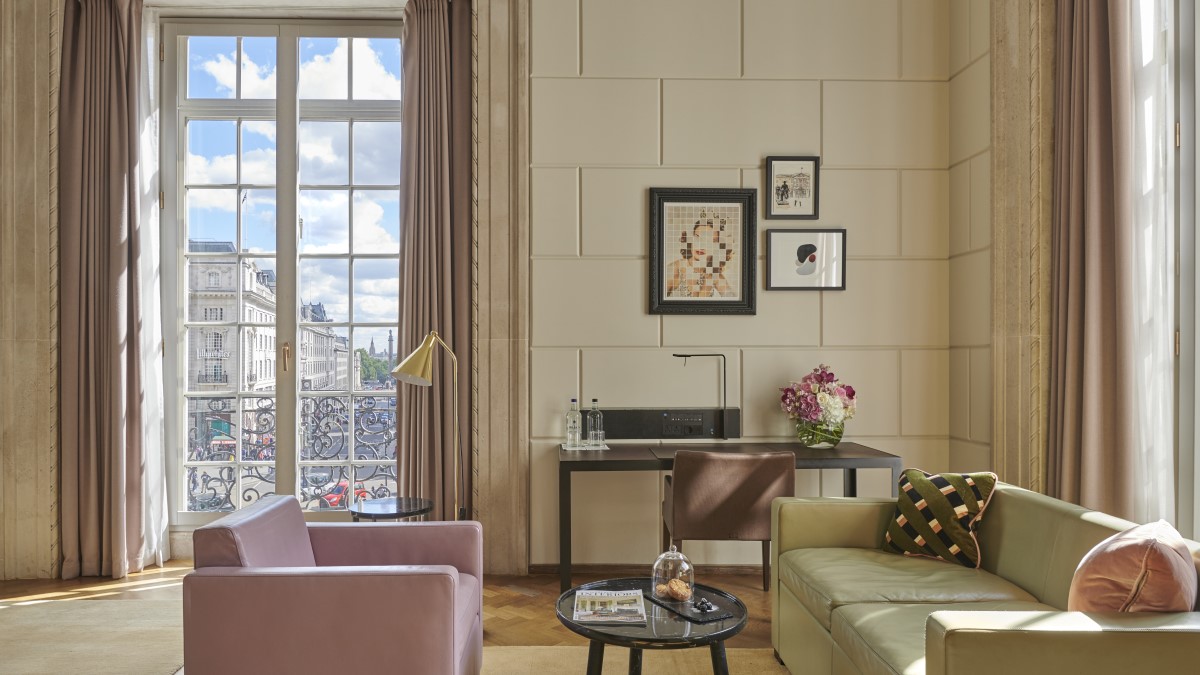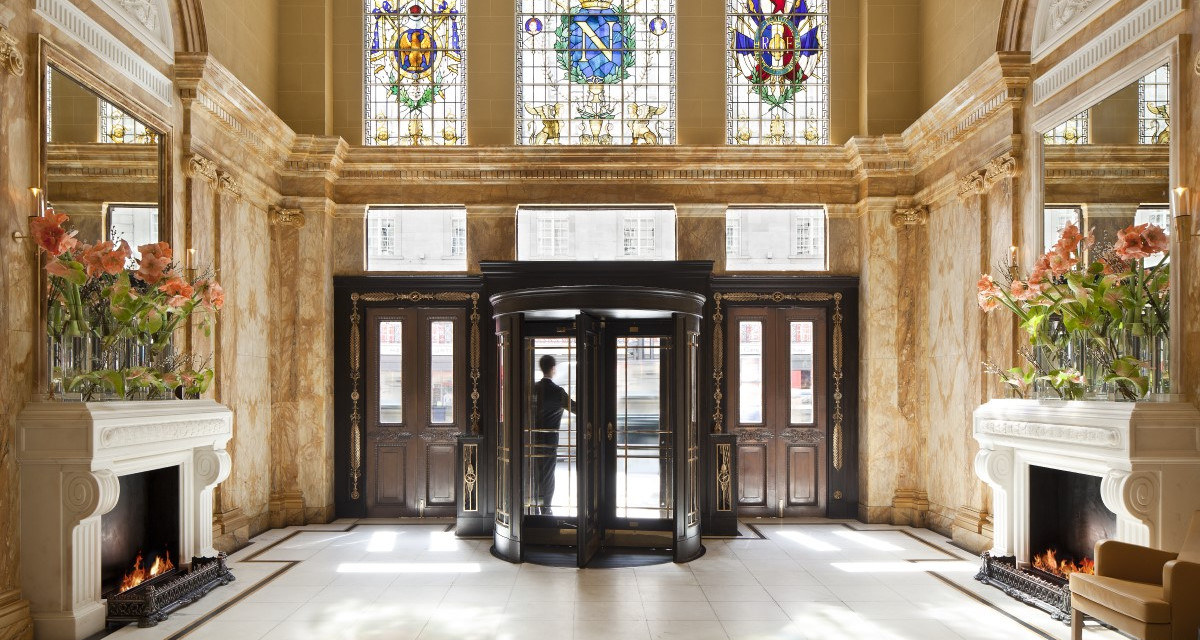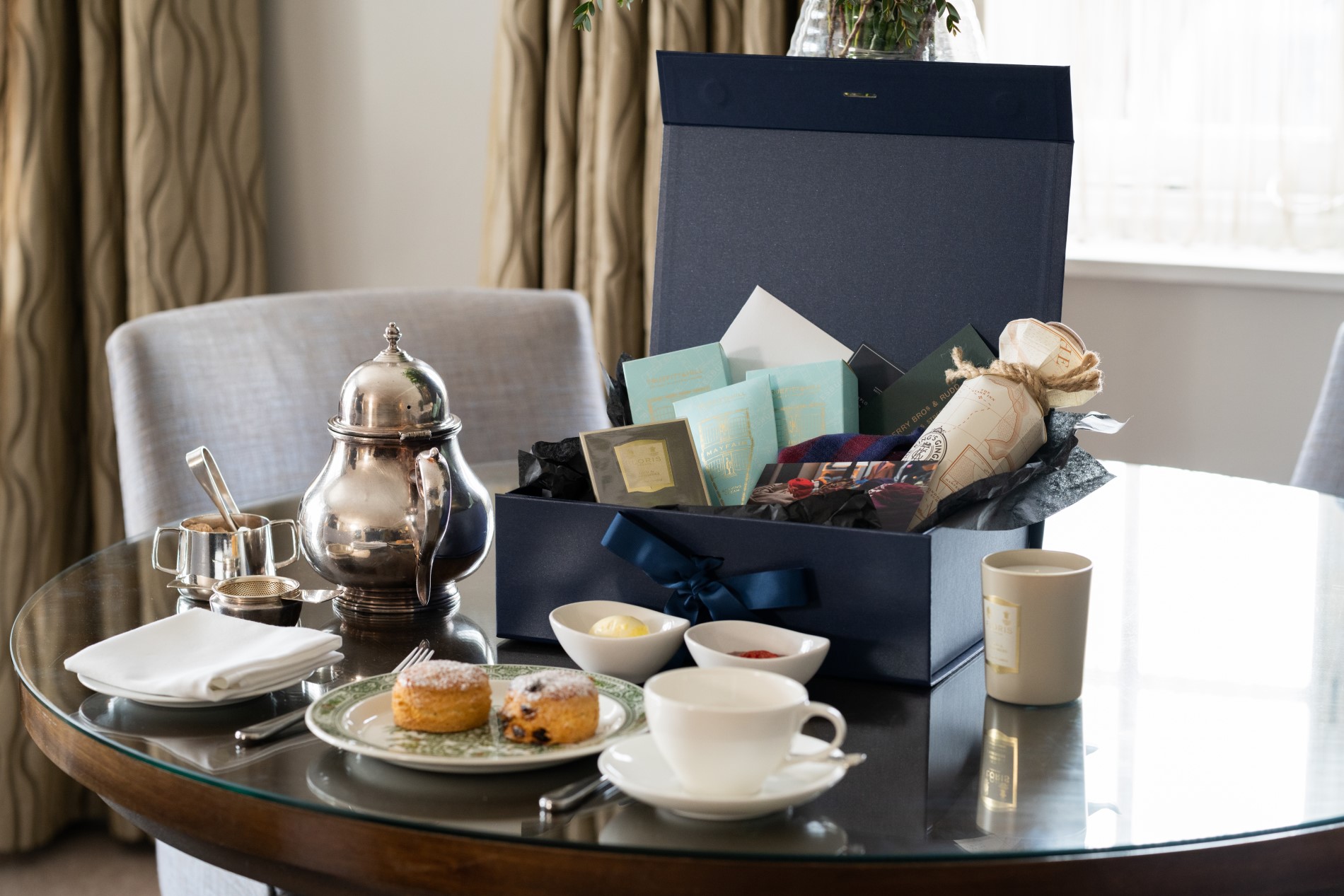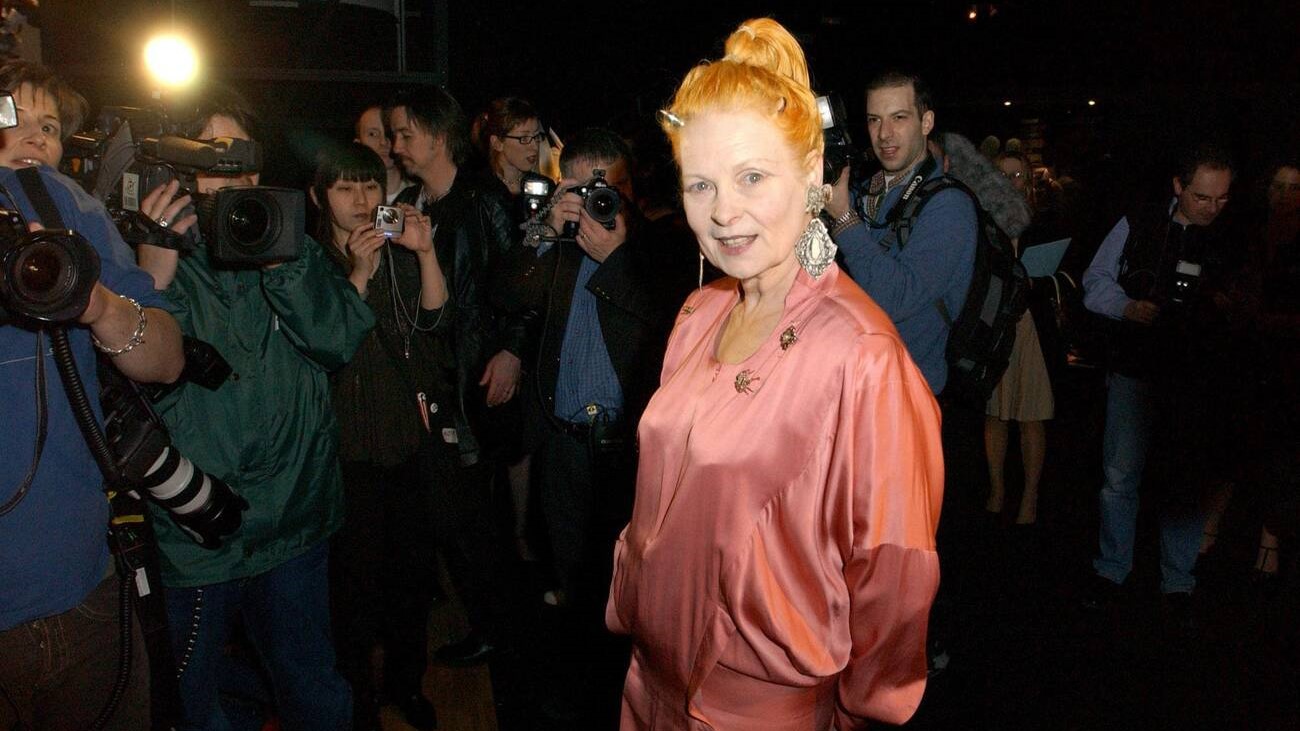David Bowie retired his alter-ego here, Muhammad Ali dazzled and Oscar Wilde held court – Hotel Café Royal, in paying homage to its colourful history, remains as fabulous as ever. Mayfair Times checks in
Words: Jonathan Whiley
By today’s standard of modern luxury, it’s not particularly fashionable to fawn over fixtures and fittings. But when a hotel stakes a claim as “London’s heaviest” – due to the sheer amount of marble that runs through its veins – it’s hard not to swoon just a little.
This is the equivalent of 80s’ power dressing and Hotel Café Royal has broad, historic shoulders to carry the weight of history within its rather beautiful walls. Founded by a French wine merchant in 1863 (having fled bankruptcy from his native country with his wife), by the late 19th-century the brasserie became the epicentre of fashionable society. The literati couldn’t resist its allure with the likes of HG Wells, George Bernard Shaw and Rudyard Kipling among the patrons. Arthur Conan Doyle was so besotted he even wrote it into one of his Sherlock Holmes novels.
Mercifully it continues to celebrate its colourful history and illustrious guests. Take a seat in the opulent Oscar Wilde lounge – Wilde would hold court here with his poetry – and you will be handed an afternoon tea menu with a guide to some of the famous names to have dined. The A-list roll calls spans statesmen, rock stars and royalty; from Winston Churchill to Brigitte Bardot, Elizabeth Taylor to Princess Diana.
Perhaps most surprising is its long association with boxing. In 1867, the Earl of Lonsdale and the fifth Marquis of Queensberry – founders of the National Sporting Club – laid down their set of boxing rules here. Almost a century on – in 1951 – Café Royal became home to the National Sporting Club with black tie dinners taking place before bouts.
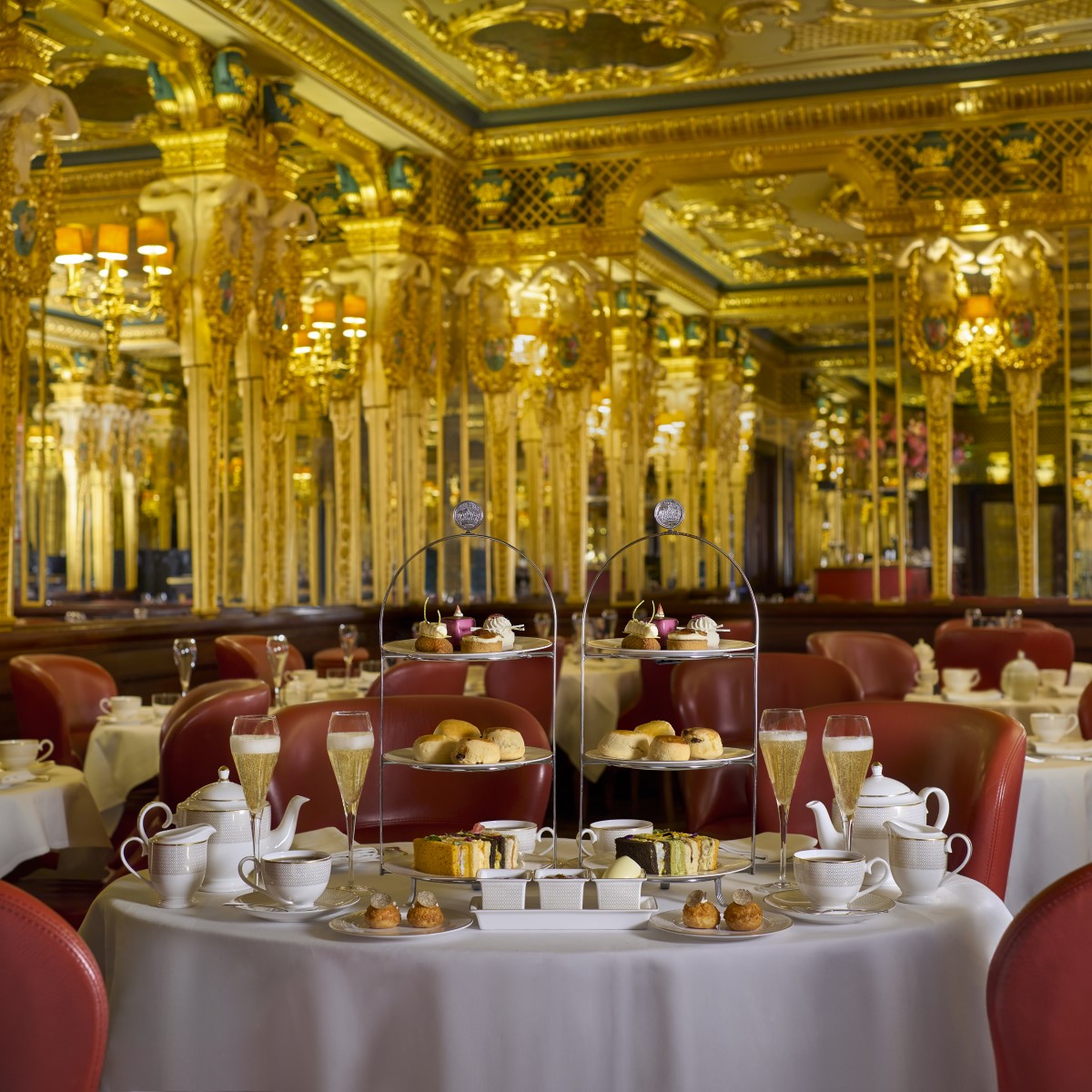
The likes of Henry Cooper and Frank Bruno spent time in the ring here, as did Muhammad Ali who – in 1977 – famously held a press conference at the Café whilst feeding his 12-month old daughter after her babysitter had taken ill.
In 2008 – as part of plans to redevelop the southern end of Regent Street – the building was acquired by luxury hotel group The Set Collection. A radical four-year restoration and redevelopment took place under David Chipperfield Architects, before it reopened as Hotel Café Royal with a dazzling new-look.
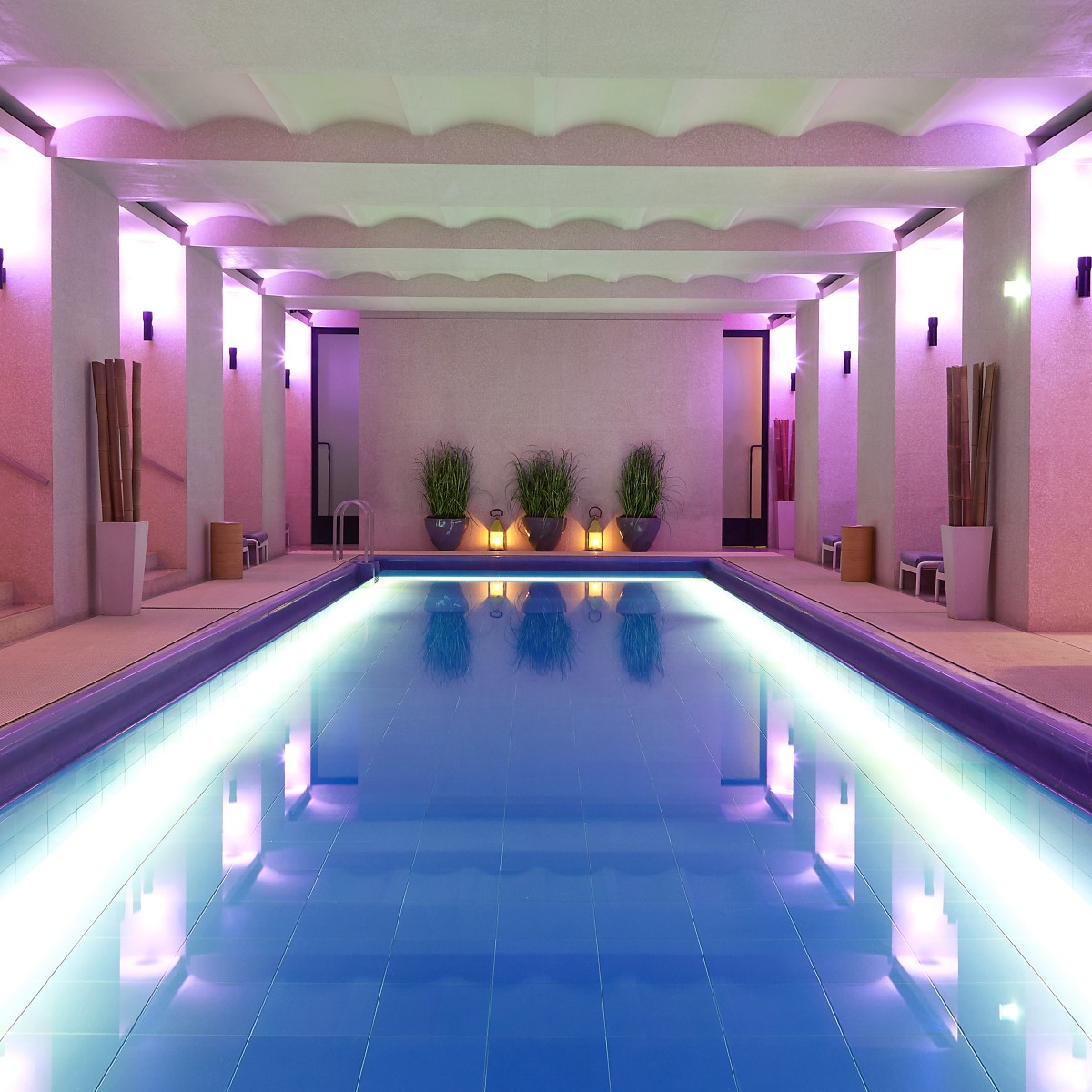
Today it remains one of the capital’s very best hotels; elegant, but never too formal, classy but never aloof. There is huge attention to detail throughout; from the small coupe of champagne that greets your arrival to earl grey jelly served with your afternoon tea scones or the welcome palate cleanser of blood orange sorbet with cocoa nibs crumble.
Facilities are first-class; enjoy a tasting menu of modern French cuisine at Alex Dilling’s restaurant, experience “a parade of sweet treats” at Cakes & Bubbles by Michelin-starred Albert Adrià (widely regarded as one of the world’s best pastry chefs) or kick back at the Akasha Holistic Wellbeing Centre with a beautiful 18-metre lap pool, Hammam, sauna and hot tub.
Rooms and suites are surprisingly understated – in a uniform of largely muted tones with the occasional splash of colour – while the stunning marble bathrooms are surely among the finest of any five-star hotel in London.
Our Westminster Suite offered primetime views of both Regent Street and Piccadilly Circus and such was the coveted view (said to be the Instagram shot we were told) we remained there for a leisurely, memorable breakfast.
My only gripe was a minor one (I tussled endlessly with the technology-led lighting), but it remains a first world problem footnote. Café Royal – where David Bowie famously retired his alter ego Ziggy Stardust with a star-studded party dubbed ‘The Last Supper’ – remains as fabulous as ever. Put on your red shoes and dance the blues – plenty of marble awaits.
10 Air Street, hotelcaferoyal.com
